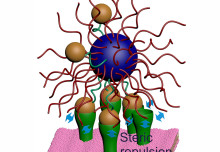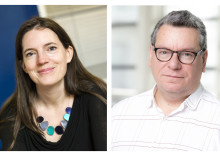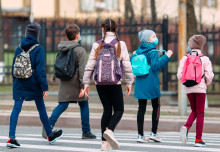

News in brief
Post-monsoon pollution and women of the Future: News from the College
Here’s a batch of fresh news and announcements from across Imperial.



Post-monsoon pollution and women of the Future: News from the College
Here’s a batch of fresh news and announcements from across Imperial.


Hydrogen-based heating could help UK reach net-zero carbon by 2050
Using hydrogen instead of natural gas for heating could help the UK to achieve net carbon-neutrality by 2050, according to new Imperial research.
 1
1


Mysterious molecular phenomenon could boost precision of targeted drug delivery
Scientists have shown how a type of cellular binding could help pave the way for highly targeted therapies against diseases like cancer.


Comet insights and new honours: News from the College
Here’s a batch of fresh news and announcements from across Imperial.


Two Imperial ‘research visionaries’ win Academy Chairs in Emerging Technologies
The Royal Academy of Engineering has appointed two Imperial engineers as Chairs in Emerging Technologies.


How materials science can be harnessed to reach net-zero CO2 emissions targets
Imperial materials scientists have contributed to two Henry Royce Institute-led roadmaps detailing how to reach net-zero carbon emissions by 2050.


Earthquake forecasting clues unearthed in strange precariously balanced rocks
Naturally formed balancing boulders could be used to help scientists to forecast large earthquakes more precisely.
 1
1


Talc and a wax-oil mixture among best lubricants for people wearing PPE
Talcum powder and a coconut oil-cocoa butter beeswax mixture provide the best skin protection for long-term PPE use, say scientists.


Audio
Podcast: Maths marvel, COVID in children and cooking with hyperfoods
In this edition: A $3m-prizewinning mathematician, a new project into how children transmit COVID-19, and recipes with anti-cancer properties.


Video
Battery fires: Industry and research must work together for safer batteries
Fire safety issues with lithium-ion batteries could be addressed with better collaboration across sectors, Imperial College London experts have said.
 1
1